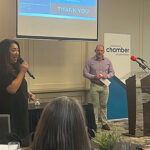Home »

Etiquette at playgroups
Cranbrook has many playgroups for parents/caregivers with children from birth to five years of age. They are free drop in groups where children can play and learn and new connections are made between families.
If you’ve never been to a playgroup, here are some guidelines that will help you to know what you can expect.
Dress code
Unlike fine dining restaurants, at playgroup it is best your child comes dressed in clothes that can get dirty when playing outside, painting, gluing or other messy and fun activities.
If it’s a playgroup that has access to a yard (like Wiggle, Giggle & Grow), dress your child and yourself appropriately for the weather so you can participate in outdoor play.
Appropriate behaviour for the child
Children are still learning how to behave in a social situation. It is particularity challenging in a big group, when they are tired, hungry, thirsty or recently had to deal with a big change in their lives, like the arrival of a new sibling.
That’s okay. That’s why it’s so great to have someone who loves them with them at playgroup whether that’s a parent, other relative or caregiver who can assess what they need and guide their behaviour.
Appropriate behaviour for the parent/caregiver
Every parent has a different philosophy and that’s okay, but at playgroups there need to be some ground rules we all agree on.
Please set a good example for your child verbally and physically.
Physical punishment teaches your child that it is okay to hurt someone if you’re bigger and stronger and it is not acceptable at playgroups.
Talk to them in a way you would like them to speak to you and others.
Keep a close eye on your child, this way you can help them navigate difficult situations. Yelling instructions at your child from across the room is usually not very effective and startles everyone else.
You can help them assert themselves, for example you can tell your child:” Tell Sally ‘I’m playing with this now, I’ll give you a turn when I’m done’, instead of taking your child’s toy out of their hands to give to someone else to avoid conflict. Learning to assert her or himself in a friendly, non-aggressive but direct way is a very useful skill for their whole lives.
Re-direct them when they are doing something inappropriate. Sometimes it works best to let a child know what they can do, instead of what they can’t do. For example: “Here is a ball you can throw. The block is too hard and might hurt someone.”
Children will learn eventually how to resolve their own conflicts, but young children need guidance to learn to interact appropriately. It’s not an easy skill to learn!
Snack time
Please stay close to your child at snack time and help your child put an appropriate amount of food on their napkins to avoid wasting food. Teach them to only take what they will eat. They can always have more!
Craft time
The finished product is not important at this age. What’s important is the creative process. Let your child take the lead. You don’t need to be an artist to engage in arts and crafts with your child. Just have fun and supply the materials and your child will enjoy being given the opportunity to express their creativity.
Playtime
If you’re playing with your child, let them take the lead and see where they take you. Children don’t have a lot of control in their lives, so it’s fun for them to take the lead in their play.
Song time
Please join us for song time. Sing if you like, but there is no pressure. Stay focused to set a positive example for your child. If your child wonders off, you can gently encourage them to join the group, but as long as they aren’t disrupting the singing, it’s okay to play and only listen to the songs. They might surprise you and sing them at home or join in with the group eventually, when they’re ready.
Sanitary environment
To maintain a healthy, clean and safe environment, please ensure that you:
Change your child on the designated change table, disinfect it after use and wash your hands;
Assist your child when using the bathroom and ensure they wash their hands afterwards;
Put mouthed toys in the designated bin to be sanitized by staff;
Sit with your child at the table at snack time for safety, sanitary and social reasons.
Health: Let’s all help to reduce the spread of diseases.
Please stay home if you or your child experiences the following symptoms:
Fever
For most viruses, a child should be fever-free for 24 hours (without medicine) before returning to programs. For children with possible swine flu, experts recommend that they stay home for 10 days after the onset of symptoms.
Diarrhea or vomiting
Keep your child home until the illness is over, and for 24 hours after the last episode (without medicine).
Bad Cough/cold symptoms
Children with bad coughs need to stay home and possibly see a doctor. It could be a severe cold or possibly bronchitis, flu, or pneumonia. But when the cough improves and the child is feeling better, then it is okay to attend programs again. There is no need to wait for the cough to disappear entirely — that could take a week or longer!
Mild cough/runny nose
If there’s no fever and the child feels fairly well, attending programs is fine. Please ensure your child’s nose is wiped as needed and put mouthed toys into the mouthed toys bucket.
For more information about playgroups in Cranbrook, go to www.Ekkids.ca
Submitted by BC Early Years Centre, 16 12th Ave N., Cranbrook







